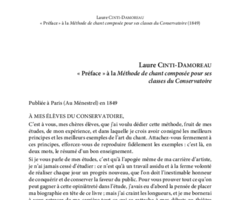Fernand Cortez ou La Conquête du Mexique

Opera in three acts, first performed at the Académie Impériale de Musique (Paris Opéra) on 28 November 1809.
After the success of La Vestale, Spontini turned to the heroic subject of the Spanish conquest of Mexico in the sixteenth century. Aware of the potential of the arts as a vehicle for propaganda, Napoleon had suggested the subject, hoping that it would encourage support for his military campaign to gain control of the Iberian Peninsula. Against a historical backdrop, the work – libretto by Jouy and Esménard – centres on the love affair between the Aztec princess Amazily and the Spanish conquistador Fernand Cortez (Hernán Cortés). The latter persuades his troops to help him free his brother Alvar, who has been taken prisoner, and at the same time kidnap Amazily. The Aztec oracle demands a sacrifice to ward off the enemy. Amazily, filled with remorse, offers to be the victim herself, but she is saved in extremis by the Spanish troops. Cortez poses as a hero who has come to rescue the indigenous populations from the servitude of their native religion; in other words, he embodies perfectly the figure of the Emperor, eager to impose himself on Europe as the champion of individual civil liberties. The première of the opera caused a considerable stir and, despite its success, the press was divided. The public reacted positively not only to the music and to Caroline Branchu’s wonderful interpretation of Amazily, but also to some of the spectacular elements, including the presence of seventeen horses on stage. Some of the critics, however, condemned the work’s bold harmonies and its loudness. With its impressive effects, ballets, a large and powerful orchestra, and the choice of a historical subject, the work was one of the precursors of grand opera. Spontini substantially revised the score for revivals in Paris (1817), then Berlin (1824 and 1832), and finally for the last one during his lifetime, in Paris in 1838.


